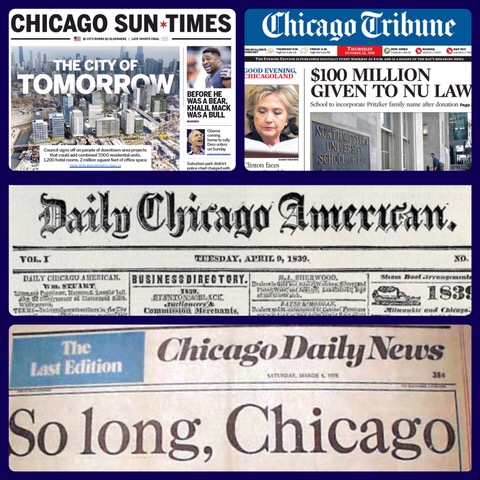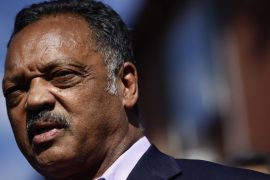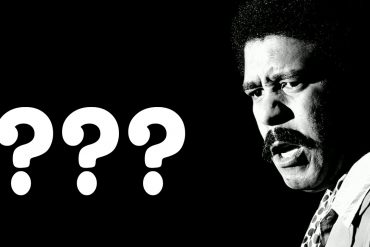A new day has come to Chicago creating a new press environment. At one time, Chicago had an abundance of community newspapers. There were four daily newspapers at one time, one in the morning and another for the late news: the Chicago Tribune, Chicago Sun-Times, the Daily News, and the Chicago American. And then there was the mother ship, City News Bureau where new reporters were trained. Crain’s found the business press. The Black press was dominated by the Chicago Defender, Chicago Crusader, Independent Bulletin, and The Citizen and others who were community bound. Then there was the alternative press, The Reader, and then came a Black alternative N’DIGO.
Opinions, commentary, profiles, stories were rich. Political opinion was fluid with pundits, like Mike Royko, Vernon Jarrett and Ethel Payne. You could expect the Tribune to endorse the Republican candidate, the Sun-Times the Democratic candidate. You could expect the Reader to write the longest story. And here we are today with a single major daily newspaper, the Chicago Tribune, with exclusive endorsement power. Chicago is the third-largest city in the U.S., with one major newspaper to endorse political candidates. Is this by design by the rich and powerful?
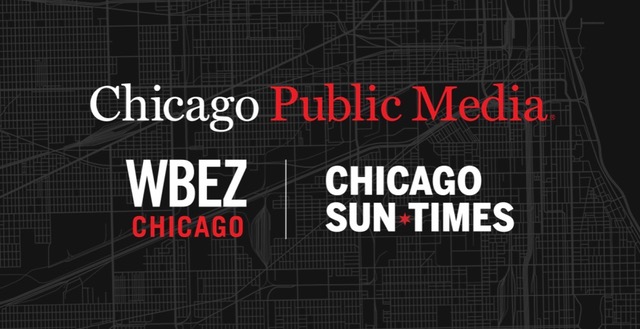
Where will the pundits land with the merger of the Chicago Sun-Times and WBEZ? The most seasoned institutionalized Chicago politico reporters walked when the Chicago Tribune was bought by the hedge fund guys. Will we see new rules of engagement for coverage? Will we talk about the issues, the candidates, the personalities, the backgrounds, the perspectives? Opinions and commentary – will they matter? Or will we reference the bloggers? Will there be just one central editorial board? Some think it won’t matter which paper supplies endorsement because not many people are reading newspapers in the digital age. Not necessarily so. Think about this. When richman, Michael Ferro, had an interest in the Chicago Tribune, he was at the same time, Chairman of The Community Trust Foundation. All donations to the press ceased. Mr. Ferro said he had a conflict of interest with all media. He even stop funding the ever-popular WBEZ programs. The power of philanthropy, I suppose.
Facebook, Twitter, and TikTok bloggers as of yet have not granted endorsements. Perhaps they will, but for now, newspapers still matter. Last year 641 newspapers in America went out of business. There is a direct correlation between a newspaper presence and a voting population. Newspapers cease, and voters diminish. A recent study on “Democracy Funders” says there are 1800 communities that have no news and thousands that have “ghost newspapers.” The good news for Chicago is that local foundations have come to the rescue. Most foundations ignore the cry to support local newspapers while their dollars tend to support public broadcast programs and documentaries.
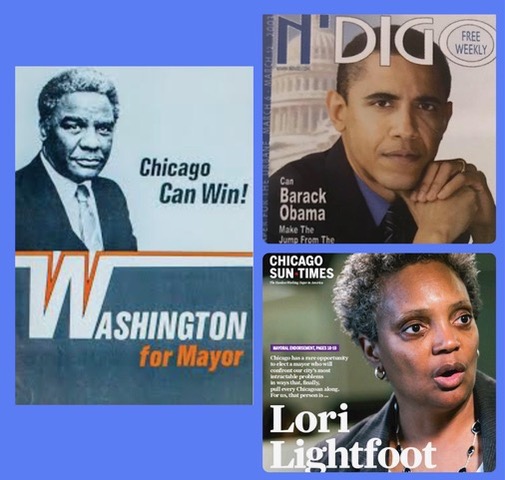
N’DIGO carried the first-ever profile article on Barack Obama while the major newspapers ignored him. We wrote extensively on Obama from the political opportunity to is he really Black enough for the Black community? The Black press was a significant element for Harold Washington. White newspapers questioned Jesse Jackson running for President, but the Black media was encouraging. Today we have a hot race for the First Congressional District. Not one story beyond announcement from the majors.
Lori Lightfoot‘s upward political movement came from an editorial in the Chicago Sun-Times. The purpose of a newspaper is to provide public news for the public interest on candidates, which ultimately means an endorsement as the public is advised about a candidate’s programs, positions, and platforms. The new company, the new business model of the Chicago Sun-Times, and WBEZ are admirable. It shows that a few foundations are paying attention to journalism, while most are not. If a democracy is to flourish, newspapers are essential. All newspapers matter.
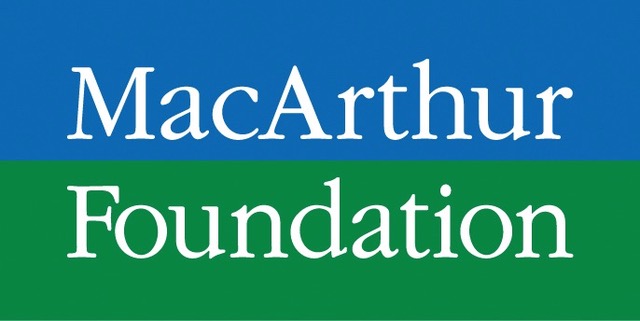

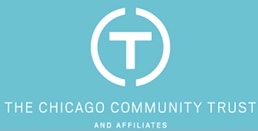
The Foundations have been the white knight for the Chicago Sun-Times and the Reader. Black press/community press/ethnic press has been limited with foundation support. The Black press has been ignored and marginalized. The wealthy have saved the Sun-Times so many times. The basic premise is to maintain Chicago as a two-paper town, and the Sun-Times, like the banks, is too big and too important to fail. The same attitude prevails with the Black press that they are too trivial to support and too often have opposing viewpoints from the majors that might disturb or disrupt the status quo. Hedge fund magnate Michael Sacks and Nykia Wright, editor of the Sun-Times, are the masterminds of the new deal. Mr. Sacks has come to the rescue more than once. Ms. Wright is a professional accountant; they created the perfect storm.
The newspapers have previously been protected by wealthy donors, the union, and now the foundations. The Black press cannot be omitted from the white knight club. The Black press has its ears on the ground, listening closely to the people as the crime happens, schools close, health issues arise, and even political campaigns. The majors often overlook this news as they report on broader problems with exclusive white perspectives. Black businesses are the most uncovered in the mainstream press. The negative Black story is the headline. And too often, the White press unnecessarily and wrongfully name Black leadership because of access to the media. Too often, the white media adopts Black fools to be the spokesman for the community. Sometimes, little do they know.
Newspapers are a failing breed, experiencing the impact of digital. At some point, besides foundation support, if newspapers remain vibrant, the government might come to the rescue. In 2008, the entire U.S. newspaper industry collected $37 billion in advertising revenue. By 2020, that number has fallen to less than $9 billion. Last year, Google reported $61 billion in ad revenue in a single quarter last year.
https://www.chicagotribune.com/opinion/commentary/ct-opinion-big-tech-journalism-competition-preservation-act-20220207-7d65tg3khzfpxmfdtlyf5vmiey-story.html. There is a bill on the floor today, The Journalism Competition and Preservation Act, that seeks to stop the theft of content from smaller publishers to the big tech companies, namely Goggle and Facebook. But then there is a possible conflict of interest on specific issues, perhaps.
The New Media Ecosystem

But now here we are with a brand new day, with fresh starts, new missions. And media experiments. We, the people, cannot afford to have newspapers for the moneyed interest exclusively—diversity and inclusion matter. I am talking about diversity of thought and opinion. The public interest is at stake, and I am alarmed for the future of the news in Chicago. Chicago cannot afford a newspaper/media desert. Chicago is a newspaper town, and we cannot depend on wire services, esoteric information, artificial reporting, abstract articles and have significant issues in the community that is ignored, forgotten, or overlooked. We must have a diversity of viewpoints, insights, and perspectives.
And then there is the racial factor. Newspapers are not objective; they function with a clear bent and focus. Crain’s writes about business.
And have beefed up their political reporting. The Tribune is a Republican paper. The Sun-Times is a Democratic paper with a 63% Black readership. Newspapers have historically been intentional in suppressing and underreporting Black America’s news. The Black narrative remains too negative. Black politicians are held to a brutal standard. Black papers must define the Black narrative.
Newspapers provide richness to a democracy. When Mayor Lori Lightfoot called the media out for racism, she was scorned, but she was also correct with undeniable proof. Pay attention to the comments made about Biden’s possible nomination of a Black woman to the Supreme Court. The remarks range from downright racist to welcoming. Black women are the most loyal voters in the Democratic Party, and we are long overdue a seat on the Supreme Court Bench. Watch the coverage and discussion in the public court of opinion that shapes categorically rather than focus on a particular person. Newspapers will shape the conversation and introduce the to-be judges.
While newspapers everywhere are threatened because of the shift of advertising dollars into digital platforms, I hope we preserve valued voices to appreciate various perspectives. We cannot dwell on wire service for news. It’s a syndicated model, one story in many places. We cannot rely on 90-second television stories. Corporate newspapers are suitable for the big picture, and with the new status of the Chicago Sun-Times/WBEZ, we will have a new model that the country will watch to study its success or failure or change.
But please let us not lose touch and flavor of community news—authenticity matters, democracy matters, race matters, opinion matters, and insight matters. Damn it.


